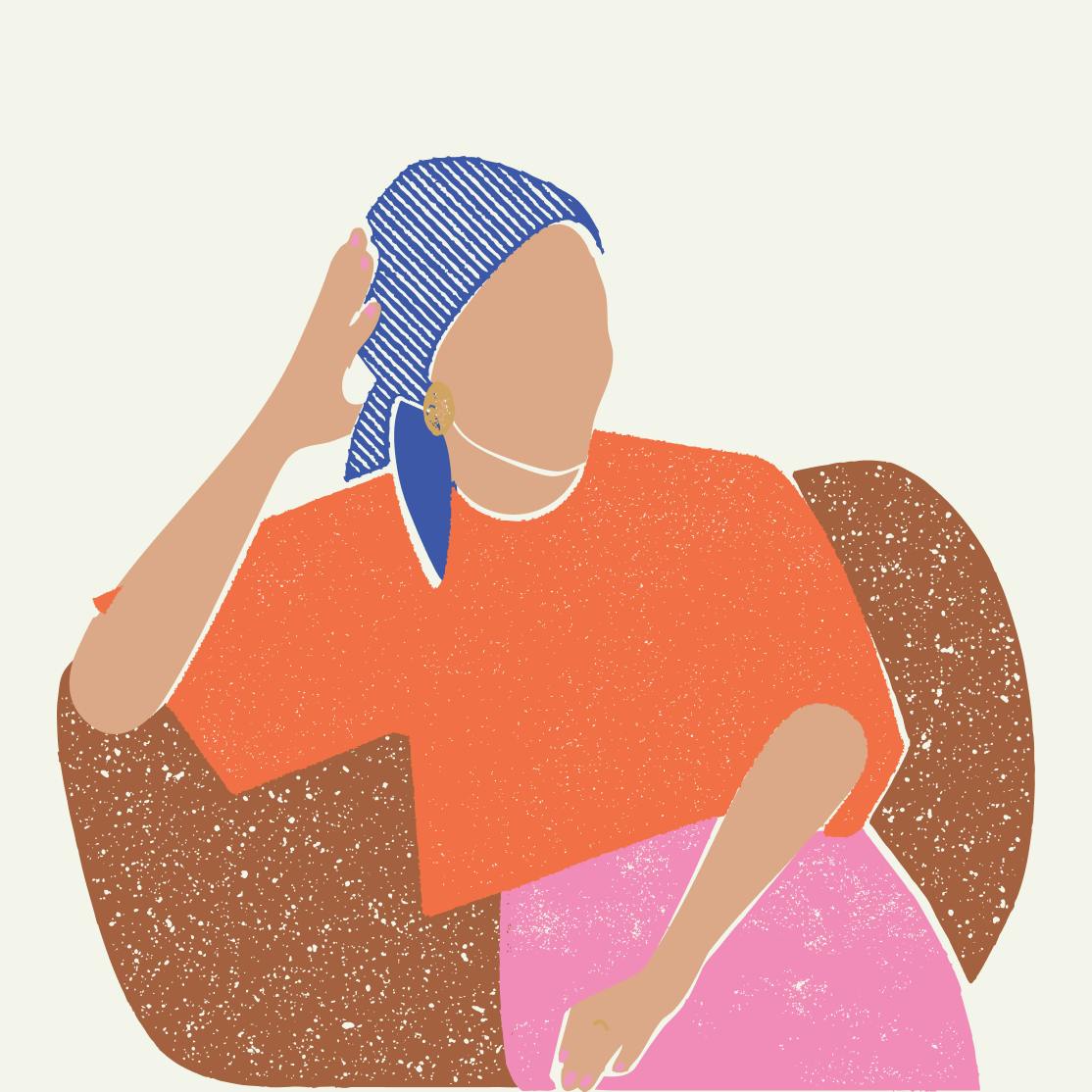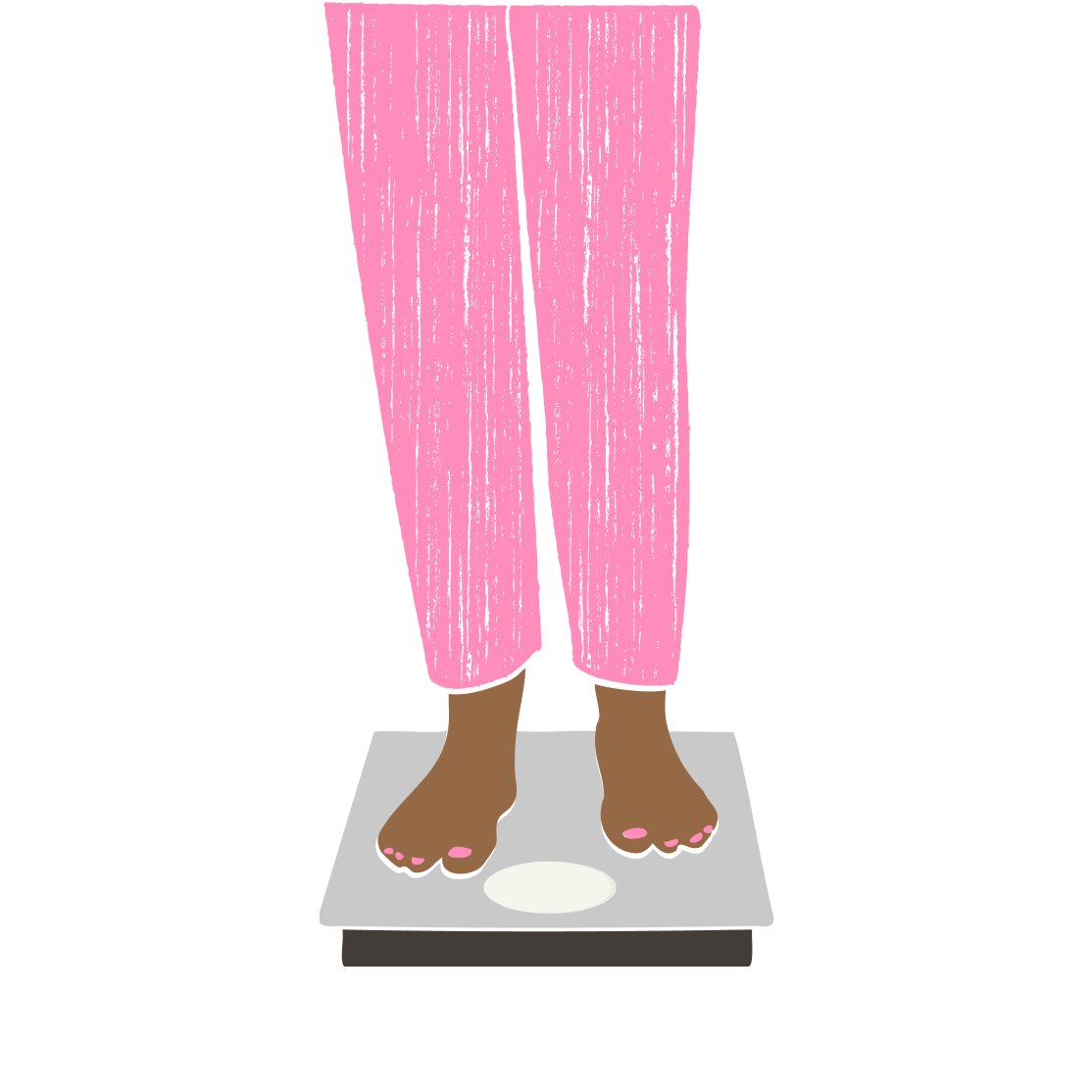Navigating menopause after breast cancer treatment can bring a unique set of challenges, and many women wonder if hormone replacement therapy (HRT) is a viable option. The good news: No matter your cancer status, there are safe, effective treatment options to help manage hot flashes, brain fog, vaginal dryness, and everything in between. Whether you're a survivor, at high risk, or undergoing cancer therapies that impact estrogen, understanding the latest science and resources can help you make informed decisions about your care.
When you’re diagnosed with breast cancer, there are few things more top of mind than reaching remission. But the journey to get there can come with a range of side effects that you may not have considered, particularly for breast cancer survivors who experience early or induced menopause as a result of treatment, leading to an array of physical and emotional symptoms.
Many women wonder what they can take for managing menopause symptoms after breast cancer. It’s an understandable question when you’re juggling two major health challenges that are often at odds with each other.

Here's the good news: Whether you’re a breast cancer survivor, carry a gene that increases your risk of developing breast cancer, or you’re considered high-risk because of a biopsy result, you have effective treatment options for menopause. This guide covers everything you need to know—including the latest science—so that you can make informed decisions about your care with your healthcare team.
Understanding Menopause and Breast Cancer
The relationship between breast cancer and menopause is multifaceted. Let's start with the menopause basics.
Menopause is a natural process typically occurring in women between the ages of 45 and 55, signifying the end of ovarian function and the end of menstruation. The hormonal shifts that accompany menopause—particularly the decline in estrogen and progesterone—lead to various symptoms, including hot flashes, night sweats, vaginal dryness, and mood changes.
But we don't all follow the same path to menopause. “With breast cancer, we often see a shift in when the perimenopause and menopausal transition happens,” says Midi's Chief Clinical Officer Mindy Goldman, who, for nearly three decades, has been a Clinical Professor in the department of OB/GYN at UCSF, where she is also the Director of the Gynecology Center for Cancer Survivors and At-Risk Women. For breast cancer patients, the onset of menopause is often induced prematurely due to cancer treatments, including chemotherapy and some hormonal therapies. Wondering how those hormonal therapies work? Some breast cancers grow in response to hormones like estrogen, so, these treatments aim to reduce or block estrogen exposure. This hormone suppression, while necessary for fighting cancer, also accelerates menopausal symptoms.
How Does Chemo Trigger Menopause?
As Dr. Goldman explains, chemotherapy is very good at targeting rapidly dividing cells. But it doesn’t just take aim at problematic cancer cells—it can also attack other perfectly healthy cells that are dividing, including follicles in the ovaries. As a result, the same treatment that helps get rid of your cancer, can send you into menopause. For younger women, ovarian function may resume after chemotherapy, but, in some cases, chemotherapy-induced menopause is permanent.
What’s Surgical Menopause?
This is yet another way cancer treatment can lead to premature menopause. Sometimes as part of breast cancer treatment, your doctor may recommend an oophorectomy, which just means surgical removal of the ovaries (which often happens alongside a hysterectomy). While this may be an important part of your overall breast cancer treatment it can also throw you into instant menopause, also known as surgical menopause.
“The symptoms of surgical menopause can often be more severe because it takes someone from having normal functioning ovaries to immediately dropping them into menopause," says Dr. Goldman. "And while the symptoms of menopause may not last any longer than if you reached menopause naturally, they can be more intense because of that immediate drop in estrogen.”
Can Other Cancer Therapies Cause Menopausal Symptoms?
Hormonal therapies that are used to treat breast cancer can often cause menopausal symptoms. Tamoxifen, which is frequently used in premenopausal women, can affect menstrual cycles and can lead to symptoms like hot flashes. Aromatase inhibitors that are used in menopausal women work by shutting down production of estrogen throughout the body and are often associated with marked vaginal dryness.
Midi specializes in the treatment of menopause symptoms for breast cancer survivors. We stay on top of the latest research, present you with a full range of treatment options, offer advice and counseling, and lean into shared decision making to design the best Care Plan for you. Our program for survivors, and those at high risk, is overseen by leading experts in the field and we work with your existing medical team to provide integrated care.
Managing Menopausal Symptoms After Cancer
Managing menopausal symptoms is a priority for breast cancer survivors, as these symptoms can significantly impact your daily life. Each symptom requires a unique management approach, and it’s essential that your care team tailor treatments to your individual needs. A menopause specialist, like a Midi clinician, can work with your oncologist to ensure that our recommended treatments are in line with your current cancer therapies, as well as your quality-of-life goals. Because yes, those matter too.
“Survivors should realize that there are many effective treatments available,” says Dr. Goldman. In addition to prescription medications, “Your clinician may recommend lifestyle changes, integrative therapies and supplements for symptom relief.” Some of these lifestyle measures, like regular cardiovascular exercise, can even help prevent recurrence and improve survival in some types of breast cancer.

Hot Flashes and Night Sweats
Hot flashes and night sweats (aka vasomotor symptoms, VMS) are perhaps the most common menopausal symptoms. For breast cancer survivors, these symptoms can be particularly intense due to the abrupt onset of menopause following treatment.
Hormone replacement therapy (HRT) is the gold standard treatment for hot flashes and night sweats, however many breast cancer survivors should not use HRT, or may prefer not to. But that doesn't mean you have to put up with these wild internal heat waves. There are a variety of alternative prescription medications that can bring relief: for example, gabapentin, which also helps improve sleep, and low doses of antidepressants such as venlafaxine, which decreases hot flashes by about 60 percent.
There are also many lifestyle, integrative, and supplement options, in addition to prescription medications, says Dr. Goldman. Studies have shown benefits for:
- Cognitive behavioral therapy
- Yoga
- Acupuncture
- Though there is less data on supplements like black cohosh, maca, and siberian rhubarb, some women do find a benefit in these items
Depending on the type of cancer you've been diagnosed with, you may actually be a candidate HRT (keep reading for more detail on the topic). That can be a godsend, because regardless of whether menopause is natural or brought on by medical treatment or surgery, HRT relieves hot flash symptoms by up to 90 percent, making it the most effective treatment for VMS.
Vaginal Dryness and Pain
“Painful sex and vaginal dryness are common problems we see with cancer survivors,” says Dr. Goldman. “We particularly see it in people who had hormone-sensitive breast cancer who are on aromatase inhibitors, because those drugs shut down estrogen production throughout the body and affect the estrogen-sensitive tissue throughout the vagina and along the outside of the vulva.” Possible treatment options include:
- Moisturizers, oils, and lubricants for sexual activity
- Vaginal estrogen, which can be particularly helpful for dryness and pain. This treatment is safe for nearly all women, including breast cancer survivors. But it's important to get the right formulation so that the hormones stay locally in the vagina and don’t get absorbed into the bloodstream, which could raise your serum levels of estrogen.
- Topical anesthetics that can be used prior to intercourse to numb the opening without dulling sensations inside.
- Vaginal dilators, which can be used to gently stretch the tissue
- Vibrators, to help bring back pleasure to the area
- Pelvic floor physical therapy, which can be very helpful for treating some of the underlying pelvic floor issues that often accompany painful sex
Dr. Goldman’s top tip: If you’re dealing with pain during sex, don’t feel like you just have to deal with it. In order to get the best care, be sure to tell your provider where exactly it hurts, as different treatment options can target different issues more directly, whether that’s pain with insertion or penetration or both.
Fatigue
Fatigue is common in cancer survivors and menopause sufferers alike. Some of the exhaustion may be a side effect of cancer therapies like chemotherapy and radiation. For others, fatigue may be the natural result of issues like poor sleep. “At Midi we focus on fixing what we can,” says Dr. Goldman. “So we treat hot flashes and night sweats to minimize sleep disruption, we treat any bladder issues to ensure that women aren’t getting up frequently at night to go to the bathroom, and we’ll recommend a healthy diet with more protein sources that are plant based alongside regular cardiovascular exercise which has been shown to decrease risk of recurrence and improve survival.”
Bone Loss
For breast cancer survivors, some therapies like aromatase inhibitors can also cause bone loss for the same reasons it occurs in natural menopause: lack of estrogen. What can help? The tried-and-true strategies that help strengthen bones through all stages of life:
- Strength training
- Weight bearing exercise
- Calcium
- Vitamin D
For some survivors, medications that improve bone density may be recommended. Ask your health care team about bone density testing so they can follow your bone health over time, advises Dr. Goldman.
Brain Fog
Similar to fatigue, brain fog is very common in cancer survivors and is usually associated with poor sleep or side effects of chemotherapy or other cancer medications. Treatments focus on improving sleep, eating a healthy diet, getting enough exercise, and managing stress. Depending on your situation, your clinician may recommend certain medications for anxiety or depression if mood changes are contributing to brain fog.
Emotional Changes
Cancer is hard, so it’s naturally going to throw you for a loop emotionally. “It’s not uncommon to see mood and anxiety disorders when someone is diagnosed and going through treatment,” says Dr. Goldman. “For those that need treatment, there are mood stabilizers that can help as well as referrals for therapy.” Again, as with most side effects of both cancer treatment and menopause, a range of treatments, including lifestyle measures, can help. Topping that list are social support, good nutrition, exercise, and high-quality sleep.
How Breast Cancer Survivors Find Relief
Many women with breast cancer, as well as survivors or those at risk of the disease, can still find relief from their menopause symptoms.
Hormone Replacement Therapy (HRT) After Breast Cancer
“It’s important to understand that breast cancers are all different,” says Dr. Goldman. “For the two-thirds of women who have breast cancer that is sensitive to hormones—called hormone-positive breast cancer—HRT is not recommended. But if you have breast cancer that isn’t sensitive to hormones, HRT can be used to treat your perimenopausal and menopausal symptoms if you have been cancer-free for a period of time.”
Questions About HRT after Breast Cancer?
In our latest webinar on breast cancer and menopause, Dr. Goldman covers everything you should know and answers your most pressing questions.
What is hormone replacement therapy?
Before we dive into HRT’s role in symptom relief, let’s back up and define it. First, the name is a little misleading—you’re not replacing any hormones but supplementing your estrogen levels. HRT, sometimes referred to as menopausal hormone therapy or MHT, works by releasing bioidentical hormones (which means they have the same chemical and molecular structure as hormones that are produced in the human body) into the bloodstream or vaginal tissue. It is available in many forms, including pills, patches, vaginal rings, topical creams and gels. To protect the uterus (in patients who have one, as opposed to those who’ve undergone a hysterectomy), doctors add progesterone or progestin to estrogen, which reduces any risk of uterine cancer.
HRT is the most effective treatment for vasomotor symptoms (hot flashes and night sweats), but it’s not right for every woman, including some women with breast cancer, so it’s important to discuss your options with a clinician or a menopause specialist who can give you individualized recommendations.
Still, we know women have a lot of questions about what’s safe for them as they navigate their breast cancer journey. Here, we cover the most common questions we hear.
Who Shouldn’t Take HRT?
If you have hormone-sensitive breast cancer, you don’t want supplemental estrogen in your bloodstream, so HRT is typically not recommended. In this case, your care team should shift to non-hormonal medication (see more on those below) as well as focus on lifestyle interventions, like the ones mentioned above, that have been shown to be effective for your symptoms.
Can you use hormones if you have had breast cancer?
Yes, in specific cases, it’s safe to use hormones if you’ve had breast cancer. “If you have hormone-negative breast cancer, so either ER-, estrogen or PR-negative, and have been free of disease for a number of years, HRT may be a good option for you,” says Dr. Goldman. “There is no compelling evidence that suggests that the use of hormones for people with hormone-negative disease increases the risk of recurrence or affects survival.”
Does HRT cause breast cancer?
Hormone replacement therapy came under fire in 2002 after the Women’s Health Initiative (WHI) study linked taking estrogen plus progestin hormone replacement therapy to an increased risk of breast cancer and heart disease. Not surprisingly, women panicked and most doctors stopped prescribing HRT altogether.
That was 20 years ago, and these days, we know much more about HRT. For one thing, we know that the WHI was designed to study the prevention of chronic diseases in older women, not to look at the prevention of hot flashes and other hormonally-driven symptoms of menopause. Moreover, the 2002 findings were exaggerated. In fact, a large body of more recent research shows that if women start hormone replacement therapy within 10 years of their last period, not only do they enjoy significant relief from menopausal symptoms but they also have a lower risk of heart disease and bone loss. HRT may also be connected to decreased risk of diabetes and weight gain. If women start hormones after menopause, this can also lower their overall risk of death.
It’s been frustratingly difficult to shake the misconception that HRT is unsafe, but at Midi, we support its use and prescribe it responsibly. That means partnering with you on a personalized Care Plan based on your unique symptoms, risk factors, and approach to wellbeing.
Can women with a family history of breast cancer take HRT?

"HRT is not off limits, both for people who have a family history as well as people who have a hereditary mutation that increases their risk,” Dr. Goldman explains. However, high risk women will need close follow up with regular breast exams, mammogram screening and sometimes supplemental imaging with things like breast MRI, she adds. Again, it's important to work with a knowledgeable clinician who can guide follow-up care.
Is vaginal estrogen safe?
Vaginal estrogen, which is applied locally to the vagina and vulva, differs from HRT, which uses systemic estrogen that is released into your bloodstream. Vaginal estrogen targets only the vaginal tissue and the hormones stay where they are applied, with almost none absorbed into the bloodstream, making it safe for nearly all women.
“There are certain formulations that a clinician can recommend for breast cancer survivors, like those on aromatase inhibitors—particularly the suppository and the ring formulation,” says Dr. Goldman. “They've been studied and are not thought to cause rises in blood levels of estrogen.”
Non-Hormonal Treatment Options for Menopause
Non-hormonal therapies have proven effective in managing menopausal symptoms, particularly for breast cancer survivors who cannot use hormone-based treatments. Those include:
Prescription Medications
- Antidepressants, such as selective serotonin reuptake inhibitors (SSRIs) and selective noradrenaline reuptake inhibitors (SNRIs), which are commonly prescribed to reduce the frequency and severity of hot flashes.
- Gabapentin, a medication typically used to treat seizures, has also been found to alleviate hot flashes and night sweats in menopausal women and may also help with sleep..
- Antihypertensive medications, such as Clonidine, have been shown to have mild benefits in improving hot flashes
- Anticholinergic medications, such as oxybutynin, can help with hot flashes as well as overactive bladder symptoms like urgency and frequency.
- Fezolinetant, a nonhormonal neurokinin 3 (NK3) receptor antagonist, was recently approved for treating moderate to severe vasomotor symptoms due to menopause.
Lifestyle Changes
- Regular exercise. “If there's one thing that I emphasize with patients, it is trying to get them to exercise,” says Dr. Goldman. “For some survivors it can decrease risk of recurrence and even improve survival. For women that have had hormone sensitive breast cancer, it’s as important as taking a tamoxifen or a Letrozole pill.”
- Nutritious diet. “We know that diets that focus on protein from plant-based sources are thought to be healthier, specifically for cancer survivors, so we’ll often review what people are eating and help provide dietary guidance,” says Dr. Goldman.
- High-quality sleep. Poor sleep can exacerbate a range of menopausal symptoms, so the more you can do to improve the quality of your sleep, the more you can help lessen some symptoms.
- Stress management. You already know this: Dialing down stress is great for your overall well being. Whether you like to mediate, go to yoga, or pound it out in a kickboxing class, the key is to focus on self-care strategies that work for you. Not only will you feel better, but it can also have a beneficial effect on other menopausal symptoms, improving everything from vasomotor symptoms to fatigue and brain fog.
Key Takeaways
- Many therapies that help women beat breast cancer also impact estrogen levels, causing some of the same symptoms that come with natural menopause. The good news: Every one of them can be improved with treatment.
- Whether you’re a breast cancer survivor, carry a gene that increases your risk of developing breast cancer, or you’re considered high-risk because of a biopsy result, it’s important to understand that you have safe treatment options for managing menopausal symptoms.
- The science has decisively changed on the safety of hormone replacement therapy (HRT) for women with a family history of breast cancer. Learn how to make informed decisions about the best treatment options for you—which may include HRT or non-hormonal remedies—to help with your unique symptoms and health history.
If you’re in perimenopause or menopause and want guidance from clinicians who specialize in women’s midlife health, book a virtual visit with Midi today.
Hormonal change is at the root of dozens of symptoms women experience in the years before and after their period stops.
Our trained menopause specialists can help you connect the dots to guide you towards safe, effective solutions.
Whether you need personalized guidance or a prescription routine to tackle symptoms—including brain fog, hot flashes, sleep trouble, mood swings, and weight gain—we’ve got you covered. Learn more here.
Midi’s mission is to revolutionize healthcare for women at midlife, wherever they live and whatever their health story. We believe that starts with education, to help all of us understand our always-changing bodies and health needs. Our core values guide everything we do, including standards that ensure the quality and trustworthiness of our content and editorial processes. We’re committed to providing information that is up-to-date, accurate, and relies on evidence-based research and peer-reviewed journals. For more details on our editorial process, see here.

 Marissa Fontanez, DNP, FNP, FAIHM, MSCP
Marissa Fontanez, DNP, FNP, FAIHM, MSCP





